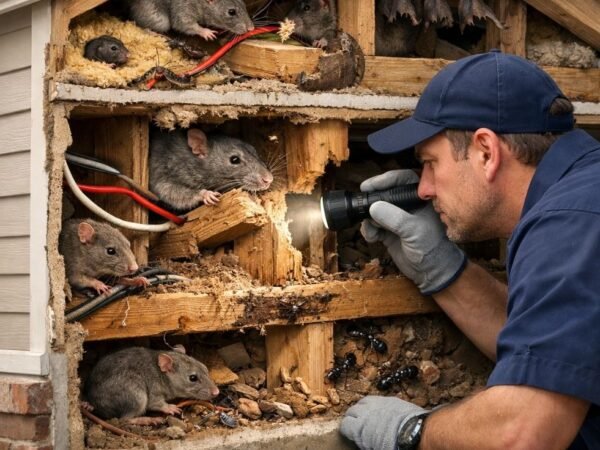A faulty boiler is a worry. It affects your home’s warmth. You might wonder about repair options. Can a grant help? There may not be grants for repairing a boiler. However, initiatives like Boiler Grants England offer boiler replacement. This grant is provided to those who cannot upgrade their boiler. It covers the entire cost, from a new boiler to installing it.
We’ll examine the signs that indicate whether it’s better to repair or replace your boiler.
How do you know if your boiler is faulty?
Boilers can become faulty due to wear and tear or specific events. Here’s a breakdown:
- Age: Like most appliances, boilers have a lifespan. As they age, parts wear out, become less efficient, or malfunction.
- Lack of maintenance: Regular servicing helps keep your boiler running smoothly. Skipping maintenance can lead to problems down the road.
- Build-up: Minerals in water can build up inside the boiler, reducing efficiency and causing parts to clog.
Specific signs
- Leaks: Leaks can develop from worn seals, valves, or pipes. This can damage the boiler and reduce water pressure.
- Faulty components: Parts like thermostats, pumps, or ignition systems can malfunction and need replacing.
- External factors: Power cuts, airlocks in the system (trapped air), or even freezing pipes can disrupt boiler operation.
Signs of a faulty boiler
- No heat or hot water: This indicates something’s wrong.
- Unusual noises: Banging, gurgling, or whistling can indicate internal problems.
- Leaks or drips: Water leaks around the boiler are a red flag.
- Cold spots on radiators: Radiators that don’t heat evenly suggest circulation issues.
- High energy bills: If your heating bills are unexpectedly high, the boiler might be inefficient.
If you experience these signs, it’s best to call a qualified engineer to diagnose the problem. They can advise on repairs or replacements.
What are free boiler grants?
In England, free boiler grants help homes save energy. They also cut heating costs. One is the Boiler Upgrade Scheme (BUS). Another is the Energy Company Obligation (ECO4). BUS promotes low-carbon heaters. These are better than old boilers. Both homeowners and landlords can apply. However, their property needs a valid Energy Performance Certificate (EPC). The EPC should have no insulation recommendations left. BUS gives up to £5,000 for sure heaters. Moreover, only accredited installers handle applications.
ECO4 scheme, the other scheme, is a broader energy upgrade program. It focuses on low-income homes. It also helps those at risk of fuel poverty or homes with poor energy efficiency. Moreover, it covers other energy-saving improvements like insulation, central heating and air source heat pumps. You can apply for eco grants through your energy supplier. You can also apply through an approved installer. They check if you’re eligible.
Why do boiler grants push replacements?
While a boiler repair might get your heating back on track, why do government grant programs in the UK not typically cover them? Here are the top 6 reasons why these grants focus on boiler replacements instead of repairs:
1. Long-Term Savings: Grants prioritize replacing a faulty boiler with a newer, more efficient model. Repairs might fix the immediate issue, but long-term energy bills might still be high.
2. Bigger Impact: Replacing a boiler saves more energy than repairing it. This aligns with the government’s goal of reducing national energy consumption.
3. Safety Upgrades: Modern boilers often come with improved safety features. Grants might encourage upgrades to ensure your home heating is safe and reliable.
4. Warranty Benefits: New boilers typically come with warranties, offering peace of mind and potentially saving on future repairs.
5. Standardization: Replacing a boiler ensures compatibility with newer technologies like hydrogen, which could be a future heating source. Repaired older models might not be compatible.
6. Environmental Push: Newer boilers are generally cleaner burning. Grants might incentivize replacing older models to reduce carbon emissions.
Am I eligible?
But don’t jump out of your skin just yet. There are some considerations to ensure whether you’re eligible for the scheme. Though eco4 is a nationwide initiative, in practice, BUS has been rolled out only in England and Wales. That’s not all; Scotland has its support schemes, as does Northern Ireland. So you’ll have to check what’s on offer in your area. Oh, and very importantly, your EPC score must be lower than D. Also, your existing boiler needs to be an older type of non-condensing boiler. You must also demonstrate that a householder in your home receives one of the following government benefits:
How do I apply?
Applying for BUS isn’t a big deal at all. You don’t have to do it yourself. You need to find a certified installer, such as those registered with the government, e.g., Eco Energy Services or Berks Insulation. They will let you know if you can apply and do all the paperwork on your behalf. Just relax!
Bottom line
While government grants in the UK usually prioritize boiler replacements for long-term efficiency, there are still options. Check with your energy supplier or local council for repair assistance programs, especially if you qualify for benefits. Remember, a repaired boiler might save you less on energy bills in the long run as a newer, more efficient model.
Also Read Interesting articles at Disboard













